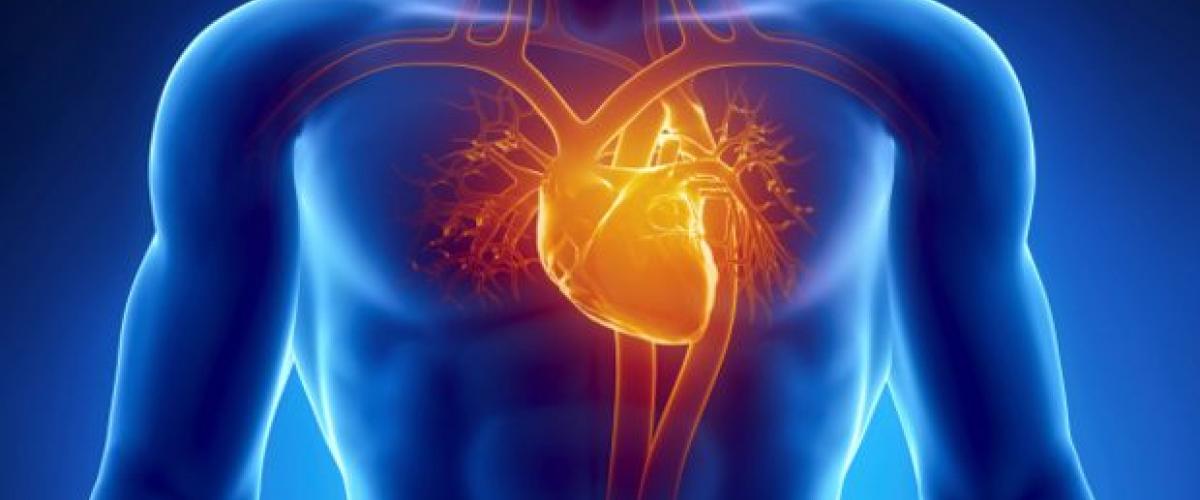
Dr Segal is a leading cardiologist based in London specialising in Atrial Fibrillation and Heart Rhythm Disorders, and an acknowledged expert in Catheter Ablation. He is internationally recognised for his expertise in Electrophysiology and use of advanced techniques involved in implanting pacemakers, defibrillators, biventricular pacemakers / ICDs and left atrial appendage occlusion devices.
Biography
Dr Oliver Segal qualified from King's College Hospital, London in 1995 and trained in cardiac electrophysiology and device implantation at St Mary's and St George's Hospitals in London. In 2004 he won 1st prize in the prestigious Heart Rhythm Society Young Investigator Award for Clinical Research in San Francisco, USA for his work on ventricular tachycardia which he undertook at the National Heart & Lung Institute, Imperial College, London. He was then selected for and completed a fellowship in Pacing and Electrophysiology at Professor George Klein's world famous laboratory in London, Ontario, Canada
Dr Segal is a Consultant Cardiologist at The Heart Hospital, University College London Hospital and The Harley Street Clinic hospitals, London. He has been practising electrophysiology for 10 years, and has performed over 1500 ablations and over 800 device implantation procedures, including pacemakers, defibrillators (ICDs), biventricular pacemakers and left atrial appendage occlusion devices (Watchman). He has published widely on all aspects of arrhythmias and has presented his work at numerous national and international conferences. His special interests include atrial fibrillation, ventricular tachycardia, ablation and cardiac resynchronisation therapy.
Dr Segal specialises in:
Atrial fibrillation (AF)
Atrial fibrillation is the commonest heart rhythm disorder in the developed world and is the leading cause of stroke in younger people and can sometimes cause heart failure. AF results from abnormal electrical impulses in the atria, which can lead to rapid, irregular palpitations, breathlessness, chest pain, light-headedness or tiredness.
Drugs are often ineffective but it can often be cured with a procedure called catheter ablation, performed as a keyhole procedure with patients needing only one night in hospital. Dr Segal is an expert in performing catheter ablation for atrial fibrillation
Catheter Ablation - The most important invention in cardiology
From the perspective of arrhythmia, I think the most important invention in cardiology in the last 50 years is the invention of catheter ablation. Since its inception it has since progressed at an astounding rate so we can now potentially treat (and often cure) almost every single cardiac arrhythmia using keyhole techniques with patients going home the same or the following day. I know how much of a difference this has made to the quality of life of my patients.
Latest blood thinning drugs and cardiac devices
We now have access to remarkable drugs for the prevention of stroke in patients with AF. AF is the second leading cause of stroke and sadly strokes which occur due to AF are more likely to be disabling or fatal. Unlike the traditional drug warfarin, the new drugs, or novel oral anticoagulants (NOACs) don't need blood test monitoring, have very few interactions with food or other drugs and most importantly cause much less bleeding in the brain. My patients are all benefiting from these new alternatives.
There are now new pacemakers which are so small they are implanted completely inside one of the heart's chambers rather than needing a long lead to connect to a battery under the collar bone. They are inserted by keyhole via the leg, leaving only a tiny scar. It is thought this will mean fewer pacemaker-related infections and avoids the issue of leads breaking in the future. When the battery runs out, another small device is implanted next to the old one. Dr Segal is an expert at implanting pacemakers, defibrillators, cardiac resynchronisation devices and the Watchman device.
The Expert Guide to Preparing for a Cardiology Consultation
There is alot of innacurate or outdated cardiology information on the internet, which means that without an expert guide, doing your own research can be more confusing than helpful. As Dr Segal says, "Visits to a cardiologist are often the most important event in a person’s life at that time". It is therefore vital to ensure that you are properly prepared and know which questions to ask in order to ensure that you receive the best possible care. See Cardiologist Consultation Checklist
-
Atrial Fibrillation Ablation FAQs
Contents:
Read full article -
Complications from Catheter Ablation for Paroxysmal Atrial Fibrillation (PAF)
Regardless of how good catheter ablation is as a treatment for atrial fibrillation, every treatment approach has its set of potential complications. As with all surgical approaches, complication rates are related to surgical skill, experience and the selected method. Although complication rates are low, some complications are more serious than others.
Read full article -
What are the Treatments for Atrial Fibrillation (AF)?
Treatments for Atrial Fibrillation (AF)
Catheter ablation for AF is usually the preferred approach and this involves pulmonary vein isolation (PVI) to insulate the heart from erratic electrical activity. This article explains the latest medical approaches for treating paroxysmal atrial fibrillation including the drugs and types of interventional procedures.Read full article -
What is Atrial Fibrillation (AF)?
Atrial fibrillation is caused as heart muscle cells in the atria (the top 2 chambers of the heart) age, they behave increasingly abnormally in conducting electricity. Much like our skin looks different in our 60s, 70s and 80s, the tissue of the heart ages too. Rather than smooth ripples of electricity conducting through the tissue, electrical chaos develops. This chaos means that the heart stops beating in a regular way and becomes much less efficient.
Read full article -
UK's Heart Experts - A Personal Approach to Treating Heart Conditions
Dr Oliver Segal, Consultant Cardiologist explains the importance of cardiac electrophysiology and how technology combined with effective treatments now provide a cure for many patients.
One of the major recent discoveries in drug development may not even be known by most people. We now have access to a number of drugs which are replacing warfarin for the first time in 50 years for the prevention of stroke.
Read full article -
Atrial Flutter Ablation FAQs
Who can have Ablation for Atrial Flutter?
Almost anyone can undergo ablation for typical atrial flutter. Patients must be able to lie flat without discomfort. Some patients may need to be able to tolerate a general anaesthetic. Most patients will have the ablation performed whilst taking blood thinning medications such as warfarin, usually for at least a month beforehand and so a previous history of bleeding may preclude this.
What are the Pros and Cons of Atrial Flutter Ablation?
Read full article -
Atrial Flutter - What is Atrial Flutter and how is it treated?
What is Atrial Flutter and How is Atrial Flutter Diagnosed?
The normal beating of the heart is controlled by electrical impulses. Atrial flutter is an abnormal electrical short circuit that results in a rapid or irregular heartbeat. It can occur in either the left or right atrium of the heart, which are the top 2 chambers in the heart. The atria pump blood to the larger ventricles below - to use a motoring analogy, they are bit a like fuel injectors or carburetors.
Read full article -
Laser Balloon Ablation FAQs
Laser balloon ablation is a specialised treatment for atrial fibrillation (irregular heart rhythms) It entails placing catheters inside the heart to ablate tissue using a laser guided by a camera. For many patients undergoing this procedure it will mean that they are able to come off their anti-coagulants, betablockers and anti-arrhythmic drugs.
Read full article -
Laser Balloon Ablation for Atrial Fibrillation
Atrial fibrillation is the most common heart rhythm disorder in the developed world and it is estimated that 1 million people in the UK have this condition. Atrial fibrillation, or AF for short, is the leading cause of stroke in the country and may also cause heart failure in some patients. It results from abnormal electrical impulses in the top chambers of the heart, the atria, which can lead to rapid, irregular palpitations, breathlessness, chest pain, light-headedness and tiredness. AF increases with age and is very frequently associated with high blood pressure but it can also occur in patients with no other medical problems.
Read full article
What Dr Segal's patients have to say:
I was so impressed with Dr Segal’s professional and friendly approach. Even with fairly run-of-the-mill ectopic heartbeats, he took the time to listen and fully explain the test results. I came away knowing what I needed to and with a clear idea of any next steps. The efficient secretarial support for the appointment and follow-up was also much appreciated.
Emily D.
If you would like to make an appointment with Dr Oliver Segal please click the button below
If you would like to arrange a private appointment with Dr Oliver Segal please complete the fields below, we will contact you shortly to make the arrangements.
We are committed to safeguarding your personal information, please read our Privacy Policy for full details.


I would like to thank Dr Segal for helping me with my atrial fibrillation over the past 18 months. Following ablation procedures he performed, I am now completely free of this condition and my tennis is never better! He is kind, easy to talk to, and always presents clear and thoroughly explained treatment options rather than pressurising you into a decision. I would have absolutely no hesitation in recommending him to anyone needing heart rhythm treatment.
Ben